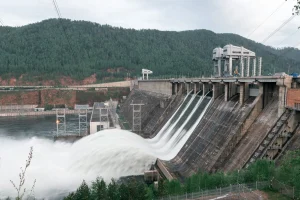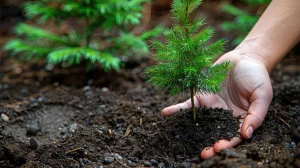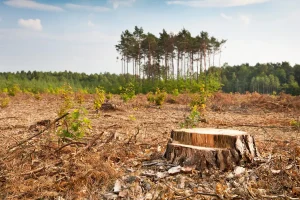Table of Contents
Soil is a natural resource that supports life on land. However, as time goes by, the soil condition is increasingly polluted. One visible piece of evidence is that landfills that are not managed wisely end up causing unpleasant odors.
This fact must make us realize that we must do various ways to mitigate soil pollution. Remember, the impact of soil pollution can be wide and affect the water quality we use daily, as well as the spread of disease around us.
This article discusses the causes, impacts, and ways to mitigate soil pollution. So, read this article until the end!
What Makes Soil Polluted?

Soil pollution can be caused by many factors, either related to natural processes or human activities. Some aspects causing soil pollutants are as follows:
- Burning garbage on the ground.
- Forest fires.
- Natural disasters, like floods and volcanic eruptions.
- Industrial waste, like lead, mercury, arsenic, and formaldehyde.
- Household waste, like used cooking oil, detergents, and used batteries.
- Agricultural waste, like insecticides, chemical fertilizers, and oil spills from tractors.
- Mining activities like sewage sludge and waste from ore processing.
Read also: Differences between Waste and Garbage, Don’t Misunderstand!
What Are the Impacts of Soil Pollution?

Some people might believe that soil pollution only affects soil fertility. In fact, if soil pollution lasts for a long time, the risk of damage can be greater and reach a wider scope.
Moreover, according to the Environmental Report from the United States Environmental Protection Agency, soil pollution that is not managed properly can spread contamination to humans and animals through inhalation, consumption, or skin contact.
In addition to that, below are the impacts of soil pollution on the environment:
- Soil degradation or decreased soil fertility.
- Dead soil microorganisms.
- The food chain cycle disruption.
- Reduced biodiversity.
- Contaminated groundwater.
- Decreased nature aesthetics.
Recommended Ways to Mitigate Soil Pollution

Did you know? All the impacts mentioned above can be mitigated if people are cooperative in maintaining the soil quality. You can start with simple actions, such as:
1. Disposing of Waste Properly
Disposing of waste properly is easy, but this is an important key to mitigating soil pollution. By throwing waste in its proper place, it will not seep into the soil and contaminate nutrients and groundwater. Furthermore, you can reduce the risk of disease, prevent water blocking, and protect animals.
If you find a trash bin, especially for inorganic, hazardous, and organic waste, make sure to dispose of the waste based on the types to make the waste management easier.
In contrast, when you do not find any bins around you, always keep your waste with you and dispose of it when you find one.
Read also: 8 Ways of Organic Waste Management, Easy and Eco-Friendly!
2. Using Eco-Friendly Shopping Bags
Using eco-friendly shopping bags is one of the simple steps to prevent soil pollution. Eco-friendly shopping bags are usually made with durable materials that can be used for various purposes for a long time. Therefore, you do not need to change your shopping bags frequently.
3. Prioritizing Biodegradable Products
Biodegradable products are decomposable naturally. They will reduce the soil pollution because it does not leave hazardous chemical residue that is hard to decompose. Some examples of biodegradable products are recycled paper and polylactic acid (PLA) food containers.
4. Carrying Out Environmentally Friendly Farming
An environmentally friendly farming system helps maintain soil quality since it does not overuse chemical pesticides and fertilizers. To do organic farming, you can use several methods, such as crop rotation, using compost, and plant-based pesticides.
5. Avoiding Discharging Waste Irresponsibly
The next way to mitigate soil pollution is to discharge waste responsibly. Before discharging the waste, you must manage it beforehand to prevent it from damaging the soil structure and polluting the groundwater. This rule applies to all forms of waste, including household, industrial, agricultural, and electronic waste.
6. Maintaining the Fertile Land
The fertile land layer, or humus, contains many nutrients and is home to many important microorganisms. You can do several things to maintain this soil, such as controlling weeds, using organic fertilizers, and maintaining vegetation around the farm area.
That concludes the explanation about ways to mitigate soil pollution, which is impactful for the survival of organisms on Earth. So, do not wait until it harms us and our future generations! Let’s do the actions above to prevent soil pollution.
By trying to preserve the land, you have made a positive contribution to the environment. To contribute further to the environment, you can join Indonesia Asri.
Through the #AksiAsri campaign. This program offers various fun and meaningful activities, such as river clean-ups, community education on waste management, and other eco-friendly challenges.
Register now to become an active Warga Asri in maintaining clean, healthy rivers that are suitable for all forms of life. Through collective action, we can ensure that rivers remain a source of sustainable life.
Read also: What is Zero Waste? Learn the Benefits and How to Apply It










